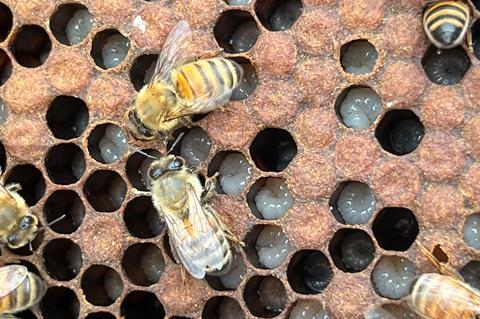Researchers to equip horticulture sector with innovative methods to manage Varroa mite spread

Hort Innovation and Macquarie University have teamed up to research detection and control methods for Varroa mite as Australia moves into the management phase of its fight against the pest.
In the first phase of the research, scientists reviewed new and innovative tools and methods being used across the globe for Varroa mite detection and evaluated how effective their use would be in the Australian beekeeping context.
The team will now look at pairing current techniques of alcohol and soapy water washes, sugar shakes and sticky strips with laser beams, cameras, vibration detection and DNA testing.
Hort Innovation chief executive officer Brett Fifield said the research underway gets Australia on the front foot for curbing the impact of the pest.
“As we move into the management phase for Varroa mite, it is essential that the horticulture sector has a multi-pronged approach to safeguarding our pollination,” Fifield said. “Learning from other countries about their experience with managing Varroa mite will accelerate Australia’s response and improve our ability to navigate this transition.”
Macquarie University senior research scientist Mary Whitehouse said the research team is shifting its focus on to analyse international research into Varroa mite control.
“From this base, our ongoing efforts are centred on active collaboration with researchers and industry people, staying current with global research on varroa management, and ensuring our findings benefit the wider beekeeping community across Australia,” Whitehouse said.
“In the first phase of this research we have advanced our knowledge of available detection techniques, and now our focus is on reviewing control methods, with an emphasis on non-chemical approaches.”
Researchers will bring together overseas Varroa mite experts, and a range of industry stakeholders including beekeepers and industry leaders from around Australia, to review the non-chemical control methods identified as potentially useful for Australia.
Beekeeper Steve Fuller said the findings will help prepare beekeepers for their future living with Varroa mite.
“Varroa mite is here to stay, so research like this is invaluable in expanding our management toolkit and keeping us up to date with what tools and technology are out there,” Fuller said.



